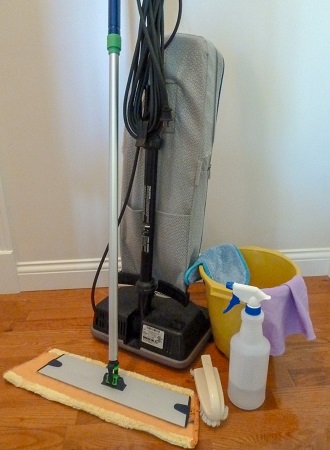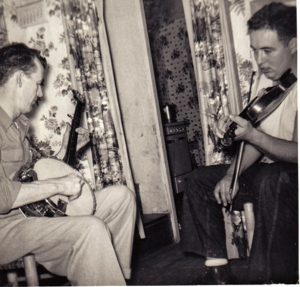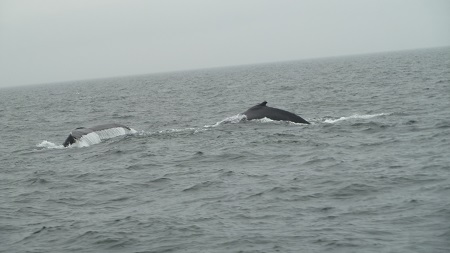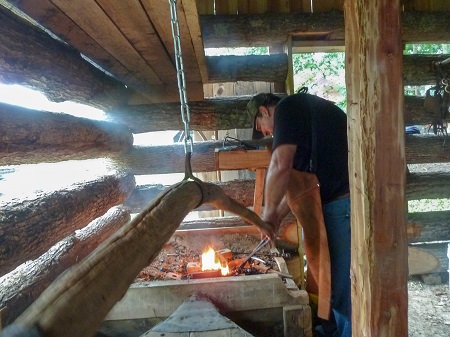Hold Someone’s Feet to the Fire
 Last week we looked at cold feet. This week we explore holding someone’s feet to the fire. I doubt many of us desire either condition.
Last week we looked at cold feet. This week we explore holding someone’s feet to the fire. I doubt many of us desire either condition.
Holding a person’s feet to the fire was a form of torture years ago. It was also a way to test a person’s courage.
Although we may not use real fire today, we still hold people’s feet to the fire.
When we hold someone’s feet to the fire, we pressure a person to do something.
- We may want the person to do what he said he would do.
- We may also try to force a person to do what we want him to do.
Occasionally we need to resist the pressure of others.
We don’t always want to do what they want us to do.
The Bible tells of three young men thrown into a fiery furnace, because they remained faithful to God. God was with them and kept them safe. Yet, they were willing to die for their faith, if necessary.
If we follow God, He remains with us, whatever fiery trials we face.
Like the three young men, we may have to go through the fire, unsure of the outcome. Like fire fighters who risk their lives for others, we may suffer when we serve our hurting world. However, we have the promise of God’s presence, whatever happens.
“If we are thrown into the blazing furnace, the God we serve is able to deliver us from it, and he will deliver us from Your Majesty’s hand. But even if he does not, we want you to know, Your Majesty, that we will not serve your gods or worship the image of gold you have set up” (Daniel 3:17-18 NIV).
Thanks to Margaret Bertram for the suggestion. Photo courtesy of Pixabay.
Do you have an expression you want explained? If so, please comment below.
Subscribe to receive my weekly posts by email and receive a free copy of “Words of Hope for Days that Hurt.”
If you enjoyed this post, please share it with your friends.
 Many of us live with cold feet. We don’t need winter, snow, or freezing rain. Our feet stay cold any time of year in any kind of weather.
Many of us live with cold feet. We don’t need winter, snow, or freezing rain. Our feet stay cold any time of year in any kind of weather. Many of us enjoy exploring our world up one side and down the other. We want to go everywhere and see everything. We stay ready to
Many of us enjoy exploring our world up one side and down the other. We want to go everywhere and see everything. We stay ready to  My friend Pam recently made chocolate chip pancakes. In addition to chocolate chips inside the pancakes, she sprinkled extra on top. Her husband asked why. Pam said, “I guess I’m just gilding the lily.” She was trying to make a good pancake better.
My friend Pam recently made chocolate chip pancakes. In addition to chocolate chips inside the pancakes, she sprinkled extra on top. Her husband asked why. Pam said, “I guess I’m just gilding the lily.” She was trying to make a good pancake better. When we use elbow grease, we work hard.
When we use elbow grease, we work hard.  My dad and Uncle Millard differed in many ways. However, they were like two peas in a pod in their love for music.
My dad and Uncle Millard differed in many ways. However, they were like two peas in a pod in their love for music. In addition to shared interests, like Dad and Uncle Millard, two peas in a pod may:
In addition to shared interests, like Dad and Uncle Millard, two peas in a pod may: Many times we feel like we are drowning in a sea of responsibility. The storms of life hit. We have too much to do with too little time or energy to do it. Yet, we keep on keeping on.
Many times we feel like we are drowning in a sea of responsibility. The storms of life hit. We have too much to do with too little time or energy to do it. Yet, we keep on keeping on. Other storms remain with us.
Other storms remain with us. On April 18, 1775 many people in Boston kept their eyes peeled on the steeple of the
On April 18, 1775 many people in Boston kept their eyes peeled on the steeple of the  They choose a slower, more relaxed lifestyle.
They choose a slower, more relaxed lifestyle. Anthony Salyers demonstrates the work of an old-time blacksmith shop during
Anthony Salyers demonstrates the work of an old-time blacksmith shop during